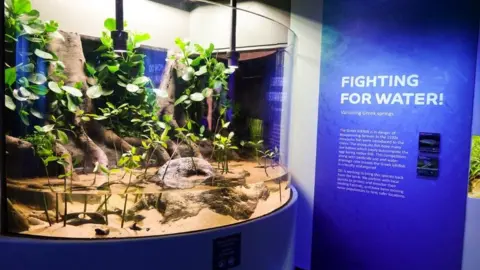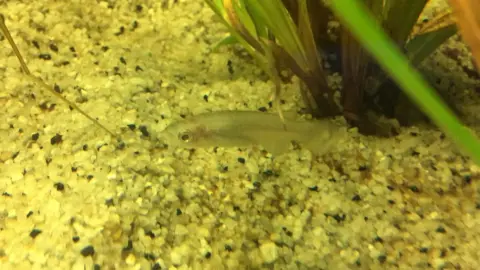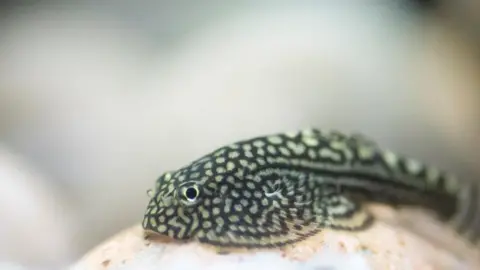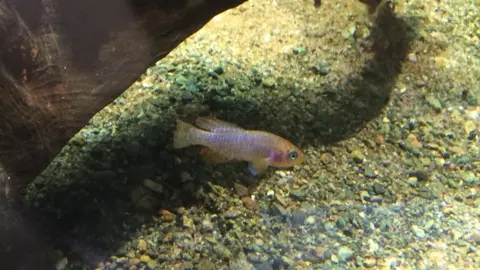Whipsnade Zoo aquarium recreates habitats for endangered fish
 BBC
BBCIt is hoped the first aquarium in a zoo's 90-year history will increase support for "the most highly threatened habitats in the world", an expert said.
The facility at ZSL Whipsnade Zoo is dedicated to conserving threatened and extinct-in-the-wild freshwater fish.
These include La Palma pupfish and Greek killifish.
Michael Baltzer, from conservation charity Shoal, hoped visitors would be encouraged "to take action and support" its work.
The aquarium recreates 10 of the planet's aquatic habitats, from a flooded forest in Brazil to an African puddle, and will house "some of the rarest and most unique fish species in existence".
 ZSL Whipsnade
ZSL Whipsnade ZSL Whipsnade Zoo
ZSL Whipsnade ZooSome are extinct in the wild and for others Whipsnade Zoo, near Dunstable in Bedfordshire, is one of the only known institutions in the world where they still exist - such as the La Palma pupfish which came from a desert spring in Mexico.


Aquarium includes:
- The dusky narrow hatchetfish which jumps out of the water in the flooded forests of Brazil to pluck low-hanging fruit and seeds from trees
- Caribbean mangrove killifish which can survive out of water for as long as 66 days
- Omani blind cave fish which navigate through pitch black caves without eyes
- The critically-endangered Greek killifish which have lived in springs in Greece since the last Ice Age but are now disappearing due to the introduction of mosquito fish in the 1920s
- In the Madagascar habitat, there is a cichlid species called Paretroplus menarambo which is also critically endangered
- Endangered Chinese crocodile lizards
- Mexican red-kneed tarantula spiders

Aquarium team leader Alex Cliffe said: "The main narrative is the conservation work that we do. It's important for people to learn what ZSL does behind the scenes.
"Freshwater fish and their habitats get under-rated and this gives visitors an opportunity to see how precious the habitats are and how unique the fish that reside there are as well."
 ZSL Whipsnade Zoo
ZSL Whipsnade Zoo
Mr Baltzer, an executive director of Shoal, said freshwater fish face a "myriad" of threats including over-fishing, pollution and climate change.
Their natural environments had been overlooked and neglected and they had become "the most highly threatened habitats in the world", he said.
Mr Baltzer said: "It is very important there are as many facilities as possible that can support breeding of the most threatened species and that can, in turn, protect the habitat in the wild with the hope to recover the wild populations."
He hoped the interest raised would "lead people to take action and support the conservation of the fish both in their local lakes, rivers and streams but also across the world".
